DON’T MISS OUT ON
ANY Project Updates
– SIGN UP FOR OUR
NEWSLETTER Now.
P.S. It’s only available in German for now.
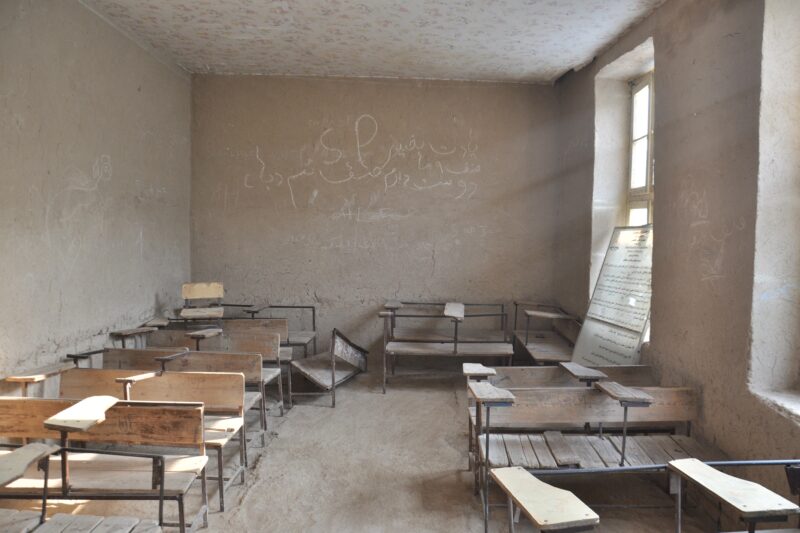
Mazar-e-Scharif, Afghanistan
Projectstart: 2022
Goal: 294.202 €
Goal: 294.202 €
The Qala-e-Jangi girls’ school in Mazar-e-Sharif currently has 1,776 registered students, but due to a severe lack of space they are currently being taught in three shifts. Because of the dilapidated buildings, some classes even have to be held outdoors. The noise level and the sometimes extreme temperatures severely limit the students’ ability to fully concentrate. The run-down sanitary facilities also weigh down everyday school life and pose health risks. Therefore, in addition to the construction of a building with six new classrooms and the equipping of the library and the science laboratory, the project also includes the installation of hygienic sanitary facilities. The construction measures are accompanied by workshops and training sessions for teachers, students and the school development council to ensure the sustainability of the measures, improve teaching quality and raise awareness of issues such as hygiene and health.
The Qala-e-Jangi girls’ school is located in Mazar-e-Sharif, the capital of the northern Afghan province of Balkh, about 300 kilometers northwest of Kabul. A total of 1,776 students aged 6-16 are registered at the school. Due to the fact that the nearest elementary school for boys is far away, the girls’ school also teaches 255 1st – 4th grade students.
LACK OF LEARNING SUCCESS DUE TO INADEQUATE EQUIPMENT
The school currently consists of 19 rooms in three dilapidated buildings. Of 15 classrooms, three are so run-down that they can no longer be used. The available space is so limited that 42 classes have to be taught in three shifts and partly outside. This severely impairs the students’ ability to concentrate and absorb information; despite attending school, they lack basic skills.
Although the school has a library including a laboratory, science subjects cannot be taught adequately due to a lack of equipment and chemical substances. There are only 400 books in the entire library, which means that the families – most of whom are economically disadvantaged – have to obtain the books they need for lessons themselves.
Due to limited access to free in-service training, some teachers also lack the expertise and teaching methods to create engaging, high-quality lessons.
LACK OF HYGIENIC STANDARDS
The sanitary facilities of the Qala-e-Jangi Girls’ School are in a desolate condition. The existing six toilet cabins and one hand washing facility date back to 1986 and are so dilapidated that they can no longer be renovated. Knowledge about hygiene measures and important rules of conduct to protect against disease is also limited.
One solar system and one water pump are currently out of service due to lack of tools and spare parts and limited knowledge of repair and maintenance.
The project addresses four key issues: improving learning and teaching conditions, improving hygiene standards, and promoting sustainable school structures.
To improve learning and teaching conditions, a new, barrier-free school building with six classrooms is being built and furnished. The library will be equipped with new furniture as well as novels and textbooks. A library system workshop will complement this new equipment. New laboratory materials and textbooks will be purchased in addition to new laboratory furnishings. In addition, science workshops will be offered to allow teachers to expand their knowledge.
The improvement of hygienic standards is achieved by providing hygienic sanitary facilities and accompanying knowledge transfer. The sanitary facilities include eight individual cabins with two barrier-free toilets, a washroom for girls and a solar-powered hand washing facility with a water tank. In several workshops, the students learn about the use of water and sanitary facilities as well as the importance of hygiene.
To promote sustainable school structures, the existing mixed-gender school development council is being strengthened. The 16 members’ knowledge of responsibilities, powers and internal structures will be enhanced in a training session. In addition, a workshop on maintenance of the new infrastructures and environmental awareness will be held.
The local partner is OASE (Organization of Afghan Support for Education), with whom we have already implemented numerous successful projects in Afghanistan. The staff is very well connected in Mazar-e-Sharif and has valuable expertise in the local educational context. This know-how makes it easier to cooperate with the local authorities and schools in view of the current political events. The commitment of OASE in the difficult security situation is outstanding and enables the continuation of educational projects also in view of new challenges that come along with political changes.
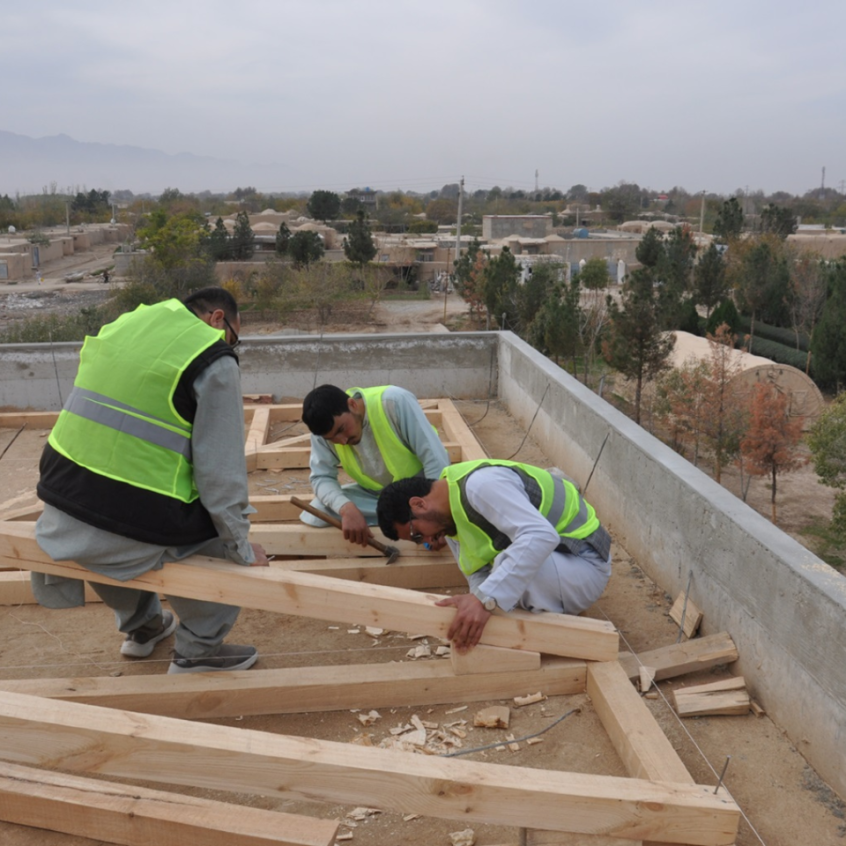
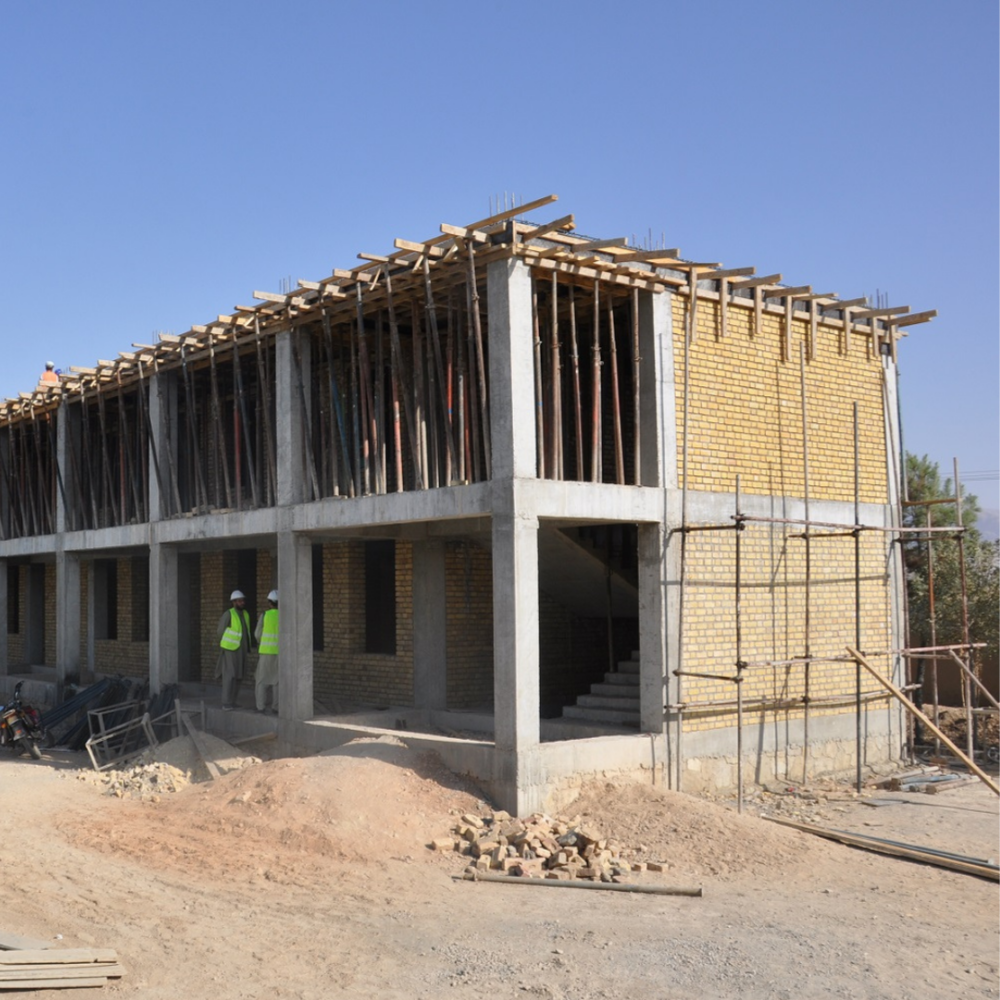
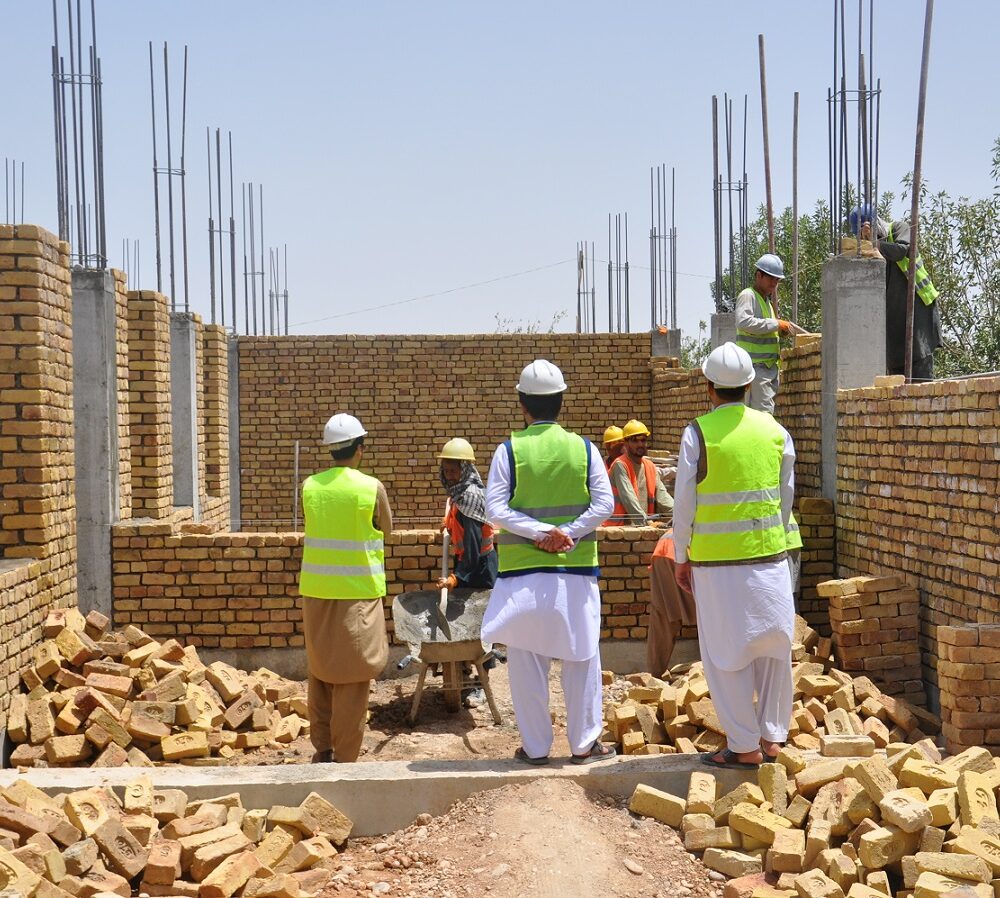
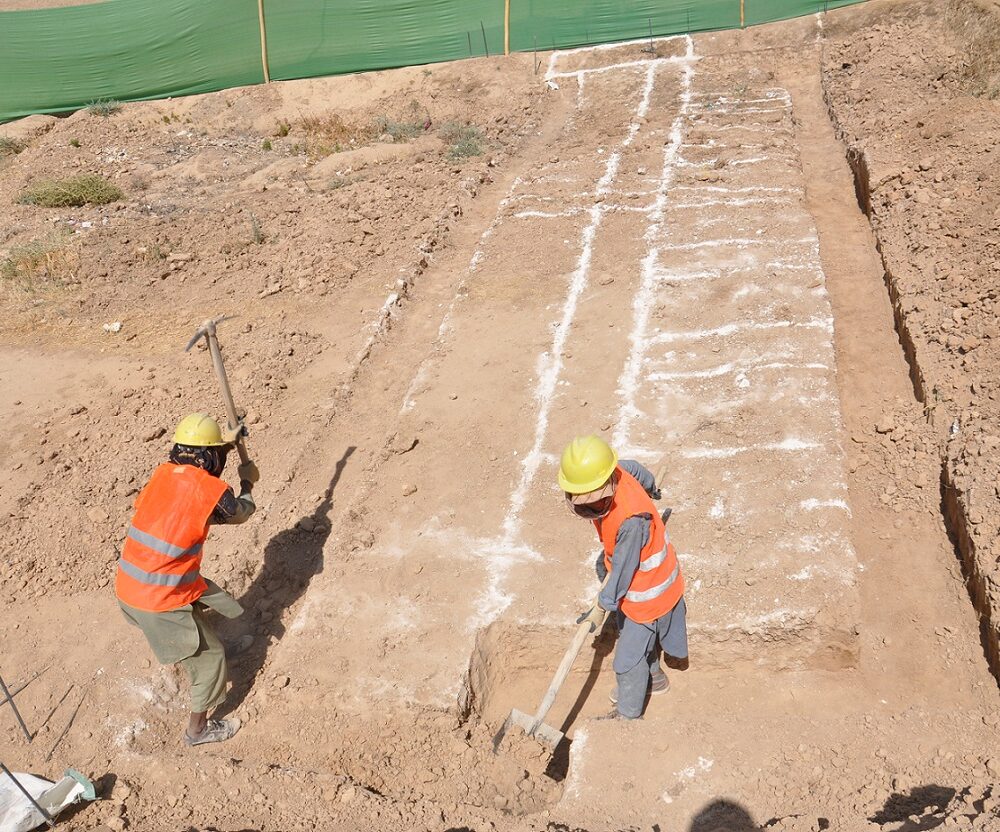
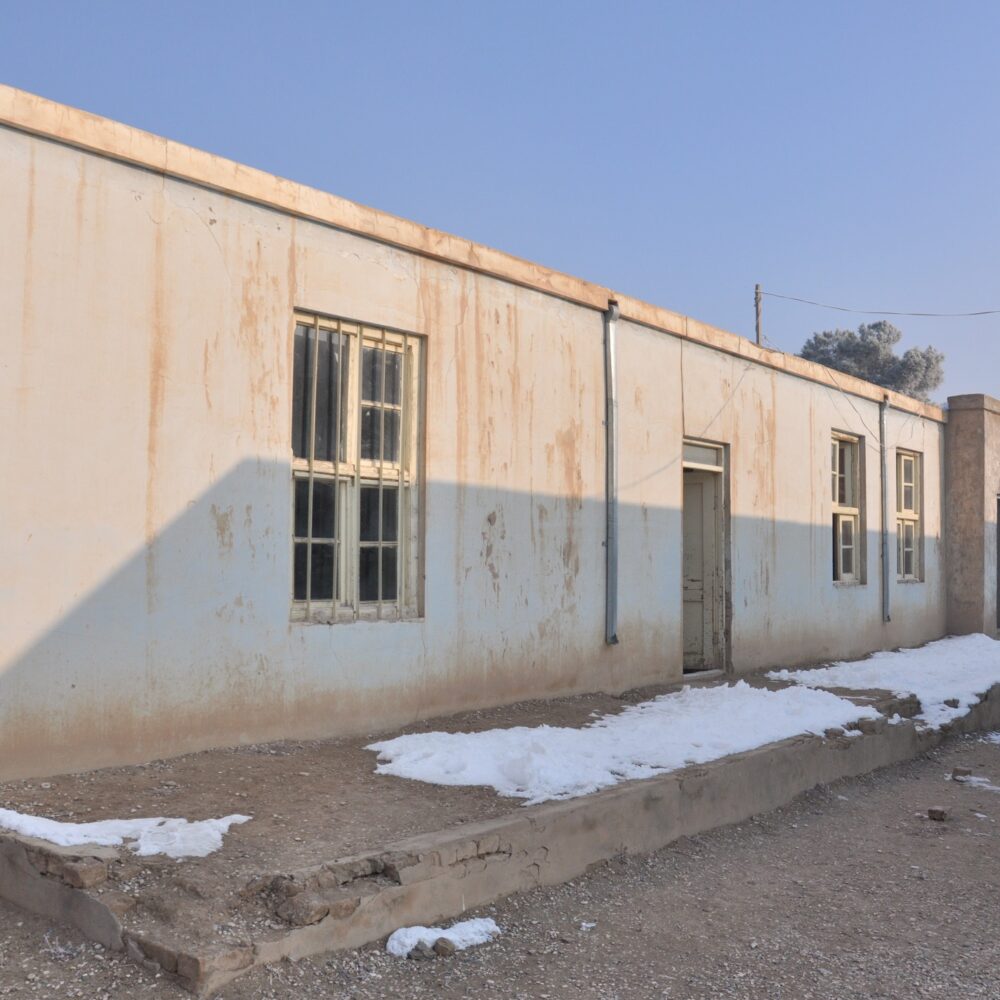
The construction work has been progressing. A six-day training for custodians has been conducted to enable repairs at this and other schools. The construction projects in Afghanistan will temporarily pause for winter, while trainings and workshops continue.
The school building is already more than halfway completed, with the walls erected and the ceiling formwork completed on the second floor.
The construction of the new school building is progressing with great strides and already at 30%. The walls on the 1st floor of the school building are set, the walls of the latrines are raised and roofed.
After 6 months, construction work started in June. Pits have been dug and the foundation for the new school building has been laid. Work on the latrines is progressing rapidly.
Our project partner OASE has known the school since 2019 and has been in regular contact to jointly develop the necessary measures and a schedule. The last needs assessment on site took place in 2022.